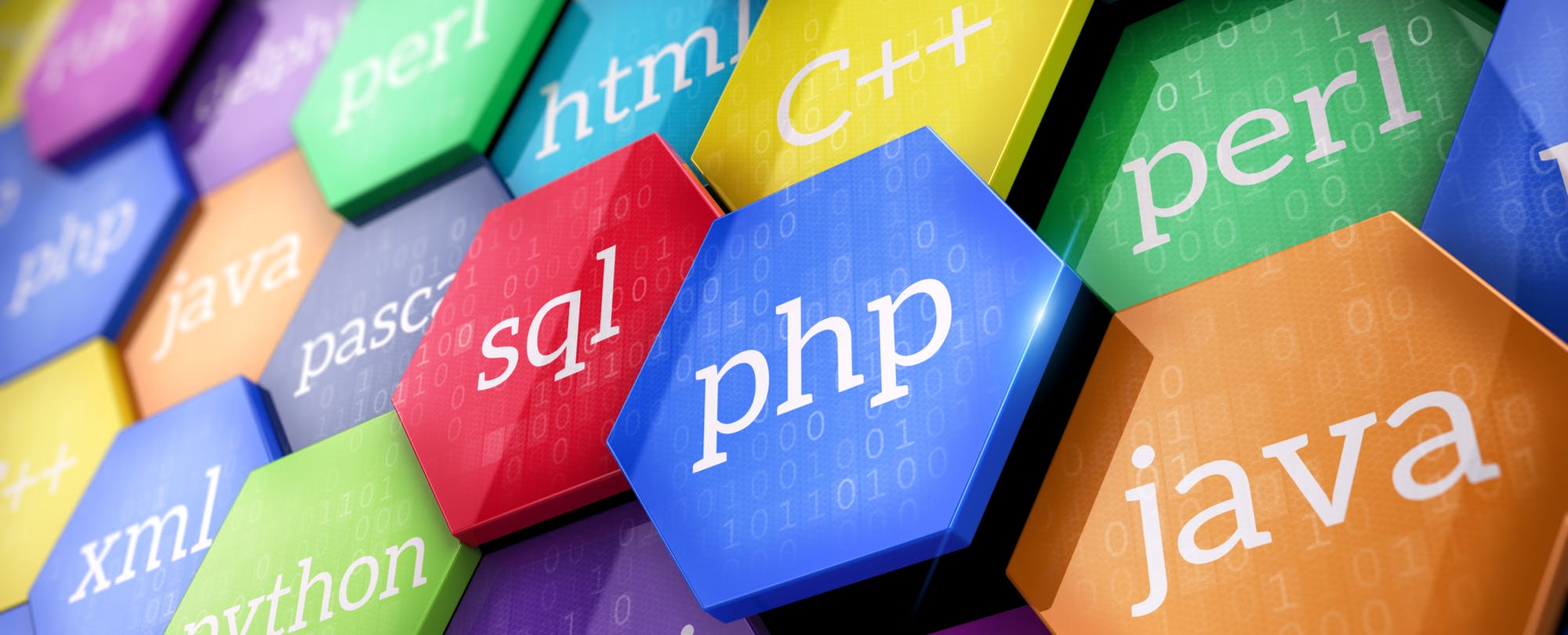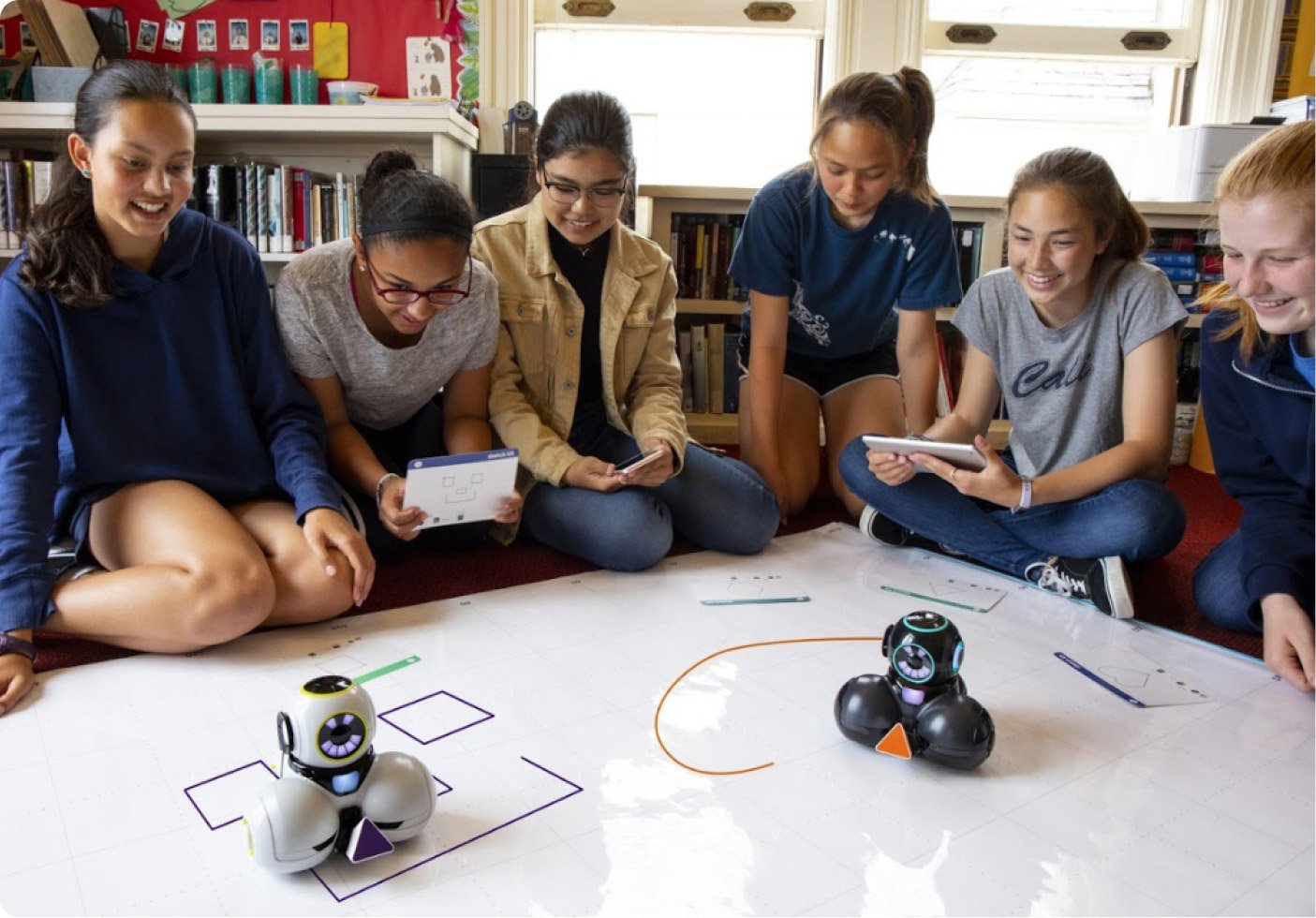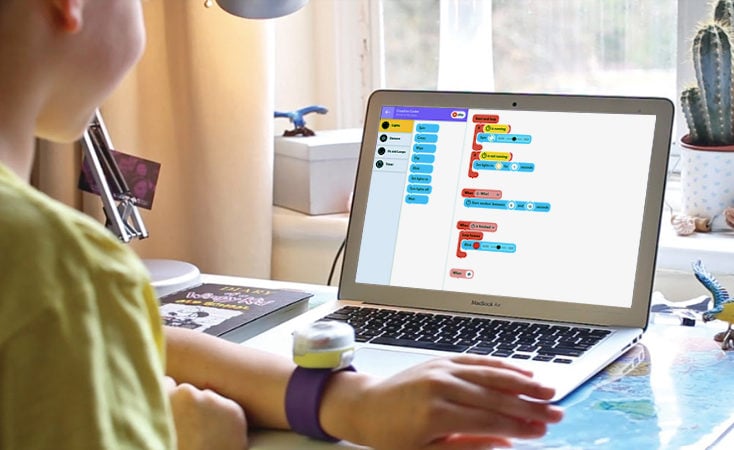We are now living in a technological world and the future of work is this: Tech workers will no longer solely work in the tech industry. Every field will hire employees with strong digital skills, and this trend will only continue to accelerate.

To prepare for this reality, there are a growing number of learn-to-code organizations exposing students as young as Kindergarten to computer science education. And it makes sense. The hypothesis operates like something of an “if-then” statement, a mainstay of computer science: If coding is the language of tech, and tech is the future of work, then young people need to learn this language in order to succeed in their upcoming careers. In essence, coding is a ticket into the party—being able to tell the computer what to do is an entryway into our technological world and, therefore, a path to upward mobility.
This is certainly true to a degree. But simply knowing how to code does not guarantee a lucrative career. Why? Because knowing how to code today does not mean you will know how to code tomorrow.
Programming languages change all the time. Teaching only coding really isn’t enough to future-proof young people’s careers. The real skill that guarantees you a job in the technological world is knowing how to learn these skills.
My constant challenge in running All Star Code, a program that teaches coding, is that technology is always changing. Programming languages like Swift, Rust, Kotlin and Typescript have all emerged in the last ten years and increased in popularity. The coding language that our students learn this summer may be out of fashion in ten years’ time.
Make no mistake, I am still all about learning to code. But it’s a means to an end. Now I believe the right approach to learning how to code is the more important objective. It’s a little like learning a foreign language. Once you know the right strategies, picking up a third or fourth language is easier. For me, the most important thing for new coders is something known as the entrepreneurial mindset.

Innovate and Grow
Recently, my organization revamped its mission statement to better reflect these ideals: All Star Code creates economic opportunity by developing a new generation of boys and young men of color with an entrepreneurial mindset who have the tools they need to succeed in a technological world.
The entrepreneurial mindset is a way of thinking that informs the way in which you problem solve. This mindset focuses on facing a challenge, daring greatly, learning from failure and trying again. The goal is to innovate—to come up with wild ideas and then try them. Through this mindset you experience growth, rapidly.
In practice, this means that coding is not the be all/end all. We use coding to provide a deeper understanding into problem solving. Coding is messy, complex and the perfect environment for young people to foster the entrepreneurial mindset. What’s important in this process is that it teaches you how to think and how to try and fail (and try and fail) and ultimately learn from it. This approach enables a coder to use these skills to turn an idea into something of value.
Becoming a software engineer or a programmer is great, but it is clear that it is not the only path to a strong job in the 21st century. In fact, some programming jobs are already being replaced by artificial intelligence. It is the ability to learn new skills that is the real superpower of our time.
To do this, we provide lessons on growth mindset, intersectionality, networking, college guidance and money management alongside the roughly 200 hours of coding. Exposure to professional norms in culture and behavior provide vital skills for any career path our students take.
In our work we have seen that an entrepreneurial mindset fosters independence and resilience, irrespective of whether they continue to pursue computer science. Our program graduates have persisted strongly in technical studies. About 84 percent of our most recent class of students reported they are more likely to study computer science because they completed our Summer Intensive.
Researchers have begun exploring the impact of entrepreneurship education. Last year, Thomas Gold of The Acceleration Group developed an index to measure entrepreneurial mindset using metrics such as: communication and collaboration, creativity and innovation, critical thinking and problem solving, future orientation, opportunity recognition and comfort with risk. (Work proceeds on figuring out how to measure other relevant metrics, including initiative, self-reliance, flexibility and adaptability).
Gold’s work is powerful because it suggests that this mindset can be taught and has a positive effect on young people’s confidence by making entrepreneurship a more viable career path.
Similarly, in my six years of founding and leading All Star Code, I have focused on these four attributes of successful entrepreneurs: grit, creativity, problem-solving and comfort with ambiguity. If you are interested in becoming more successful entrepreneurially, I encourage you to assess your strengths and weaknesses in these four areas.
On grit: Think of a recent time you got something wrong and your behavioral response to it. Did you try again after making that mistake until you got it right, or did you give up and do something else?
On creativity: When was the last time you thought outside the box, wondered about something random or listened to a podcast on a topic totally unfamiliar to you?
For problem-solving: How often do you research a particular problem in order to understand it better? When is the last time you had an original idea and voiced it? Do people come to you with their problems? (If so, do you see a pattern in what subjects these problems are?)
And when it comes to comfort with ambiguity: How often do you enter into a situation without feeling confident of where it’s leading?
Once you’ve assessed yourself, you can consciously make an effort to improve your entrepreneurial mindset.
Learning to code is a rigorous and worthwhile new experience for most people. But instilling a passion and aptitude for lifelong learning should be the ultimate goal for educators.

Discover more about Coding with RobotLAB!
Check our products page, and our learning platform Engage!K12 that offer a wide range of lessons for students and teachers! No robotics experience required.
RobotLAB products Take me to Engage! K12
